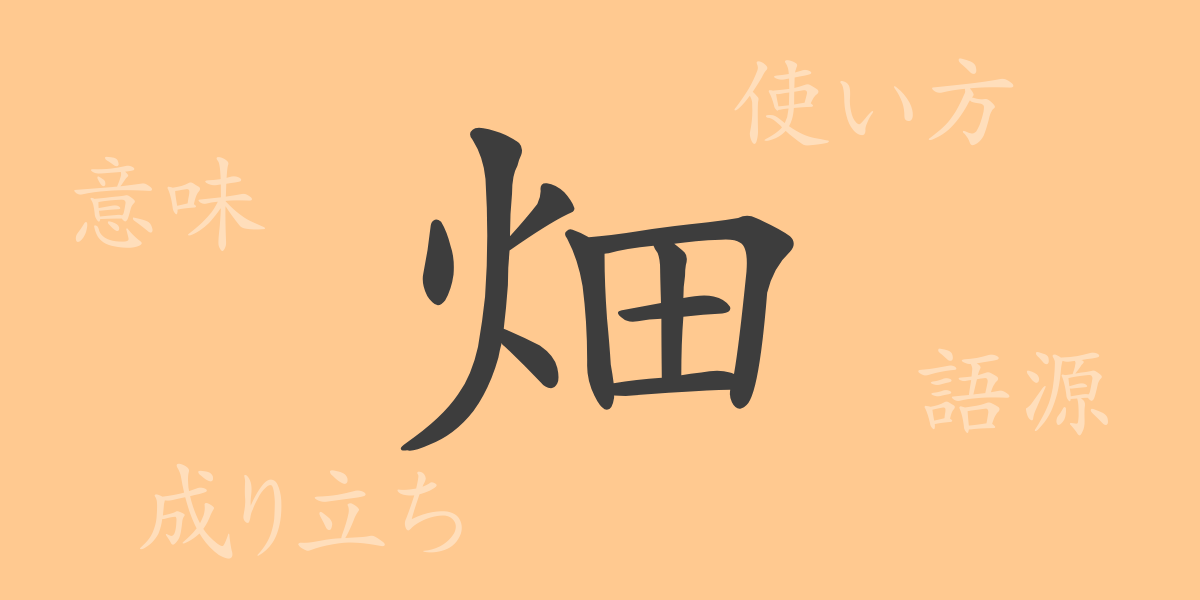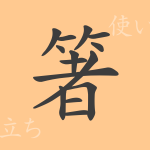In Japanese culture, *kanji* characters reflect a rich tapestry of history and meaning. Among them, the character “畑(はたけ)” plays a crucial role, not just as a representation of farmland but as a symbol deeply intertwined with food and daily life. This article delves into the *kanji* “畑(はたけ),” exploring its origins, meanings, usage, and related idioms and proverbs. In a country where agriculture has long been a cornerstone of society, what role does “畑(はたけ)” play, and how has it become embedded in people’s lives? By unraveling the historical context behind each stroke of this character, we aim to uncover its hidden meanings.
Origins of 畑(はたけ)
The origin of the *kanji* “畑(はたけ)” can be traced back to the concept of “a land where fire is used.” In ancient agricultural practices, slash-and-burn farming was common, where trees and grass were burned, and their ashes used as fertilizer for cultivation. This act of “using fire” influenced the creation of the character “畑(はたけ),” which later evolved to refer to arable land used for settled farming practices, without the need for fire.
Meaning and Usage of 畑(はたけ)
“畑(はたけ)” primarily refers to land suitable for cultivation, particularly for growing crops like grains and vegetables. Unlike rice paddies, which are used for wet farming, “畑(はたけ)” denotes dry farming land, often associated with crops other than rice in Japan. It can be used in phrases such as “野菜畑(やさいはたけ)” (vegetable field), “花畑(はなばたけ)” (flower field), or metaphorically, as in “夢畑(ゆめばたけ)” (a field of dreams).
Pronunciation, Stroke Count, and Radical of 畑(はたけ)
The *kanji* “畑(はたけ)” is unique to Japanese and reflects the nation’s agricultural heritage through its pronunciation and structure.
- Reading: *Hatake* (訓読み), *Hata* (used in surnames or place names)
- Stroke Count: 田 (5 strokes) + 火 (4 strokes) = Total 9 strokes
- Radical: 田 (たんぼへん, rice field radical)
Idioms, Sayings, and Proverbs Using 畑(はたけ)
The *kanji* “畑(はたけ)” appears in numerous idioms, sayings, and proverbs, many of which evoke images of agriculture and the natural world. Here are some examples:
- 「畑仕事(はたけしごと)」: Refers to farming tasks carried out in the field.
- 「畑一面(はたけいちめん)」: Describes a vast expanse covered with fields.
- 「畑を耕す(はたけをたがやす)」: Literally means to cultivate a field, also used metaphorically to mean making efforts in a new area.
- 「夢畑を耕す(ゆめばたけをたがやす)」: To work towards realizing challenging dreams or goals.
- 「畑違い(はたけちがい)」: Refers to being outside one’s area of expertise; commenting on topics beyond one’s knowledge or experience.
Conclusion About 畑(はたけ)
The *kanji* “畑(はたけ)” symbolizes Japan’s natural landscape and people’s way of life. From its origins to its modern meanings and uses, “畑(はたけ)” provides a glimpse into the history of Japanese agriculture and culture. As seen in idioms, sayings, and proverbs, this character is deeply rooted in the daily lives and hearts of the Japanese people. Going forward, “畑(はたけ)” will continue to be a vital symbol, not just as a *kanji* character but as a representation of Japan’s history, environment, and the hearts of its people.

























